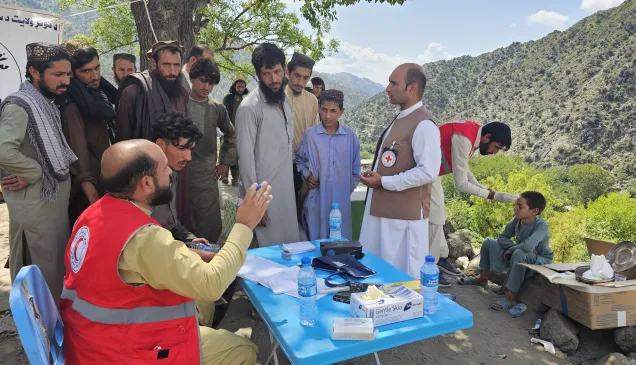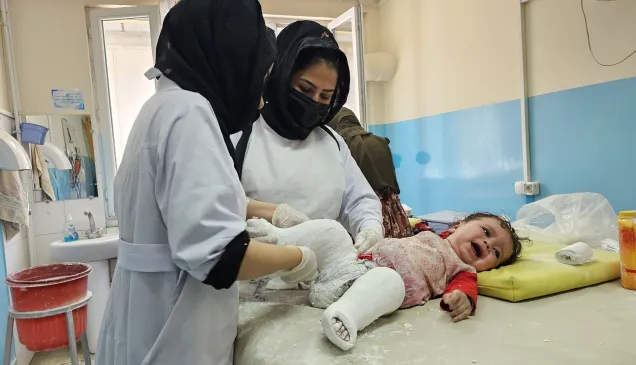ICRC President: "Despite an end to the fighting, the economic, social and humanitarian emergency is deepening"
Speech given by Mr Peter Maurer, President of the International Committee of the Red Cross, at Afghanistan Pledging Conference — 31 March 2022
Excellencies, distinguished colleagues,
Afghanistan is a country in crisis. Despite an end to the fighting, the economic, social and humanitarian emergency is deepening.
Over half the population now needs food aid, and levels of acute malnutrition spiralled in recent months. State income streams have dried up and the country's banking and liquidity crisis has left people without access to savings or credit. Ordinary people are struggling to survive.
Humanitarian organisations have put in place stop-gap measures to mitigate the impacts of the crisis, and to ensure the continuity of essential services like health, education, water and electricity.
The ICRC is working with the Ministries of Public Health and Higher Education to support 33 hospitals and teaching hospitals across the country – sustaining both services and staff capacity through running costs and salary payments. We are convinced of the value of this model for delivery through existing systems. It is a model to scale and enlarge to build resilient systems for the future.
And yet, humanitarian efforts are not sufficient. They cannot replace the flow of international assistance that had been Afghanistan's lifeline through recent decades; they cannot compensate for the deep and wide economic crisis the country now faces.
The unanimous Adoption of UNSC Resolution 2615 was a positive step, and with the general licenses issued has been critical to enable current humanitarian efforts. I now call upon states, financial institutions, and other partners to build on this and to redouble their efforts in two respects:
1. Scale up support to humanitarian efforts to ensure continuity of essential services.
The ICRC extended our projected expenditure in 2022 to just short of 200 million Swiss francs (USD 215 million). These funds will ensure hospitals continue running, the salaries of medical staff are paid and technical capacity in the health sector is re-built. We are also scaling-up our work in other key sectors such as support to public water and electricity utilities so the uninterrupted supply of drinking water in urban centres can be maintained.
2. Open channels for technical support to revive the Afghan economy.
The only scalable and sustainable solution to the current crisis is to get Afghanistan's faltering economy running again. We need "first movers" to bringing technical support and capacity to rebuild confidence in banking and financial systems.
Excellencies, more can and must be done. The recent unexpected announcement cancelling the reopening of schools for girls over the age of 11 took us all by surprise. This is a major setback for the hopes of all Afghans for a better future, and I hope it will not serve to alienate the international community whose engagement is so urgently needed at this time by the Afghan people.
Moreover, as global attention shifts to other high-profile crises, we must not lose our focus in Afghanistan.
I urge international partners to scale up their support, particularly in view of the wider repercussions of the Ukraine conflict on the Afghan economy. The rise in prices and disruptions of wheat and fuel imports from Central Asia will hit the poorest Afghans hard.
Afghans must not feel they have been abandoned. They have suffered too long and too greatly. They deserve better.
Thank you.



